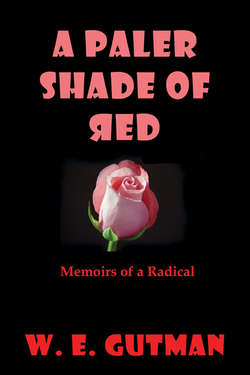Читать книгу A Paler Shade of Red: Memoirs of a Radical - W. E. Gutman - Страница 13
На сайте Литреса книга снята с продажи.
ОглавлениеFUTURE PERFECT
Proverbs and aphorisms and in-your-face wisecracks are the legacy of the Jewish people. We wouldn’t know how to ride the stormy swells of life or countenance calamity without invoking some quaint saying that warms the soul, or chases away the blues or restores faith in divine providence:
Life is the greatest of all bargains; we get it for nothing.
The clever repartee that lifts the spirit --
Live; you can always hang yourself later.
The age-old counsel that warns against rumor-mongering --
What your eyes don’t see, don’t invent with your mouth.
The sarcasm that demolishes absurd assumptions --
If my grandmother had testicles, she'd be my grandfather.
The sardonic rejoinder to airs of mawkish nostalgia --
If you want to talk about the good old days, wait a while.
The subversive one-liner that encapsulates and concretizes the Jewish ethos --
To be Jewish is not a circumstance; it’s a state of mind.
Jews are by nature restive, skeptical. Encrypted in the Jewish psyche, the greater truths and lesser lights our Biblical heroes bequeathed are course-plotting aids, not endpoints. We recognize their fallibility. Adrift on a sea of perplexity, we don’t follow them without engaging in endless soul-searching or endless debate. It’s our nature to spin then reject hermetic concepts. We are, therefore we doubt. Everything is relative, unfinished, highly debatable, often contentious. We owe this paradox both our longevity and our vulnerability. Reality is a many-sided gem. It’s impossible to glimpse all the facets without being blinded in the process. To see everything is to see nothing. So we improvise.
There’s a question to every answer.
The closer you get to the altar, the farther God retreats.
Sometimes, we switch from the declarative to the interrogative. When we respond to a question by asking another -- an acquired reflex -- what emerges is neither witticism nor affront, but the synthesis of a cardinal reality in which the sublime and the ridiculous come together and mate. It takes very little to create an alternate reality -- or to endow it with a seductive oddness.
One day, in Tel Aviv -- I was about twelve -- I asked a passerby for the time.
“Why do you care,” he retorted and walked away. A few days later, as I rummaged in search of shoelaces at a Jerusalem bazaar, the merchant informed me with studied indifference that he’d run out but would be happy to sell me toothpaste. I could have demurred but I didn’t. This sort of pluck, this archetypal chutzpah, would teach me, as my ancestors called their “pedagogics” -- two basic lessons:
Time swallows everything; then it swallows itself. To know the time is a nuisance. It does nothing to alter its course.
Without a trace of irreverence, malice or lunacy, wit is humorless.
I would seize the moment one day and get even. Call it atavism or chromosomes on speed. In 1956, shortly after I immigrated to America, I enlisted in the U.S. Navy. The recruiter asked if I could swim.
“Why,” I asked without a trace of irony, “don’t you have ships?” I no longer wonder whether the recruiter had ever, even for a moment, envisaged the rib-splitting perspective of a fleet bereft of vessels.
“Why are you enlisting in the Navy?”
“So I don’t have to swim across the Atlantic.”
I know the martial soul of the military. It’s a soul that asks itself few questions. Its optic reveals a grimness and narrowness of mind that forbids it to ponder abstractions or hypotheticals. My deadpan baiting would qualify me as an “agitator” in U.S. Navy files. I would later be branded a gadfly, a muckraker, a heretic, and worse.
